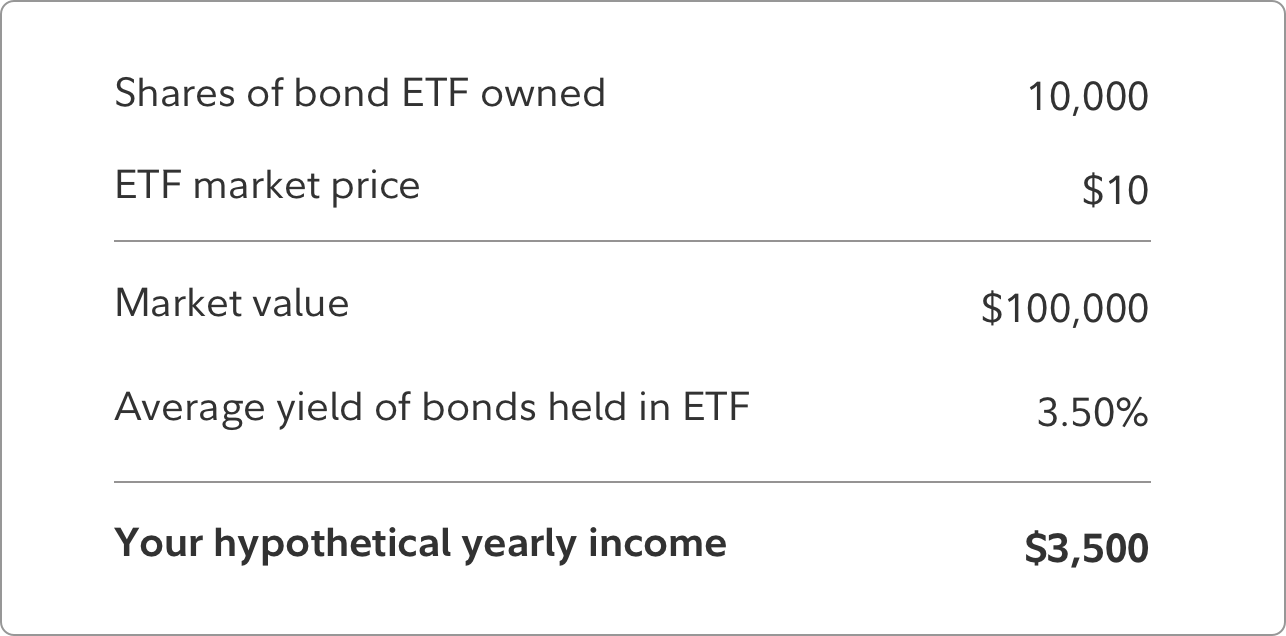Free commission offer applies to online purchases of Fidelity ETFs and iShares ETFs in a Fidelity retail account. The sale of ETFs is subject to an activity assessment fee (historically from $0.01 to $0.03 per $1,000 of principal).
ETFs are subject to market fluctuation and the risks of their underlying investments. ETFs are subject to management fees and other expenses.
High-yield/non-investment-grade bonds involve greater price volatility and risk of default than investment-grade bonds.
Diversification and asset allocation do not ensure a profit or guarantee against loss.
In general, the bond market is volatile, and fixed income securities carry interest rate risk. (As interest rates rise, bond prices usually fall, and vice versa. This effect is usually more pronounced for longer-term securities.) Fixed income securities also carry inflation risk, liquidity risk, call risk, and credit and default risks for both issuers and counterparties. Unlike individual bonds, most bond funds do not have a maturity date, so holding them until maturity to avoid losses caused by price volatility is not possible. Any fixed income security sold or redeemed prior to maturity may be subject to loss.
In general, fixed income ETPs carry risks similar to those of bonds, including interest rate risk (as interest rates rise, bond prices usually fall, and vice versa), issuer or counterparty default risk, issuer credit risk, inflation risk, and call risk. Unlike individual bonds, many fixed income ETPs do not have a maturity date, so holding a fixed income security until maturity to try to avoid losses associated with bond price volatility is not possible with these types of ETPs. Certain fixed income ETPs may invest in lower-quality debt securities, which involve greater risk of default or price changes due to potential changes in the credit quality of the issuer.
Exchange-traded products (ETPs) are subject to market volatility and the risks of their underlying securities, which may include the risks associated with investing in smaller companies, foreign securities, commodities, and fixed income investments. Foreign securities are subject to interest rate, currency exchange rate, economic, and political risks, all of which are magnified in emerging markets. ETPs that target a small universe of securities, such as a specific region or market sector, are generally subject to greater market volatility, as well as to the specific risks associated with that sector, region, or other focus. ETPs that use derivatives, leverage, or complex investment strategies are subject to additional risks. The return of an index ETP is usually different from that of the index it tracks because of fees, expenses, and tracking error. An ETP may trade at a premium or discount to its net asset value (NAV) (or indicative value in the case of exchange-traded notes). The degree of liquidity can vary significantly from one ETP to another and losses may be magnified if no liquid market exists for the ETP's shares when attempting to sell them. Each ETP has a unique risk profile, detailed in its prospectus, offering circular, or similar material, which should be considered carefully when making investment decisions.
For iShares® ETFs, Fidelity receives compensation from the ETF sponsor and/or its affiliates in connection with an exclusive long-term marketing program that includes promotion of iShares® ETFs and inclusion of iShares® funds in certain FBS platforms and investment programs. Please note, this security will not be marginable for 30 days from the settlement date, at which time it will automatically become eligible for margin collateral. Additional information about the sources, amounts, and terms of compensation can be found in the ETF’s prospectus and related documents. Fidelity may add or waive commissions on ETFs without prior notice. BlackRock and iShares® are registered trademarks of BlackRock Inc., and its affiliates.
†
Source: BlackRock, as of 10/31/2023. Market leader based on market share, number of ETFs, and $2.2 trillion in assets under management as of 10/31/2023.
Before investing in any mutual fund or exchange-traded fund, you should consider its investment objectives, risks, charges, and expenses. Contact Fidelity for a prospectus, offering circular or, if available, a summary prospectus containing this information. Read it carefully.
625678.8.0
![]()
![]()
![]()
![]()
![]()
![]()
![]() Commission-free
Commission-free


